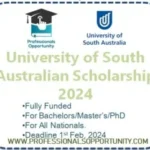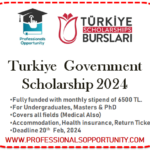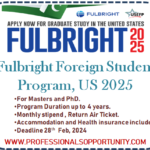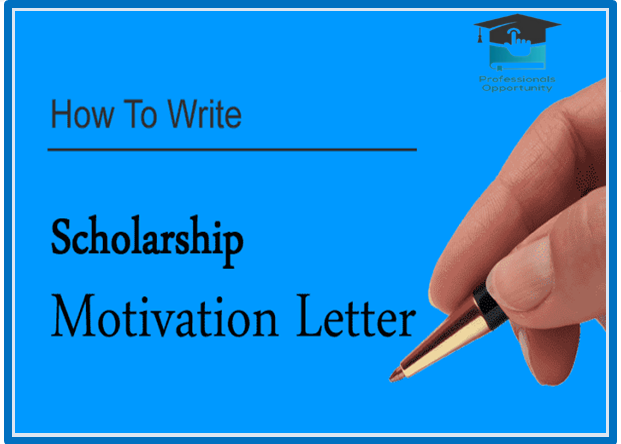
How to get a Scholarship in Europe ?
By Guest Author Mr. Simon
Introduction:
Hello everyone! My name is Simon and I’m here to share my knowledge and experiences around getting a scholarship to study in Europe. Obtaining a scholarship can greatly reduce the costs of your education and open up amazing opportunities to live and learn abroad. In this post, I’ll discuss the various types of scholarships available, eligibility requirements, application processes and tips, as well as share some personal anecdotes from my own scholarship journey. By the end, I hope you feel informed and motivated to pursue this exciting path. Let’s get started!
Types of Scholarships in Europe:
There is a wide variety of scholarship programs offered by European universities, governments, nonprofits and private organisations. Here are some of the main categories:
- Merit-Based Scholarships: These scholarships are awarded based on your academic excellence, talents, community service or other achievements. Merit scholarships do not consider your financial need. Top students with high grades and test scores have a good chance of receiving this type.
- Need-Based Scholarships: Need-based awards consider your financial circumstances and ability to afford education costs. They are intended to broaden access to university for qualified students who cannot afford the high tuition fees. To be eligible you will need to demonstrate financial need through documents like tax returns.
- Government or National Scholarships: Many European countries offer scholarships directly through their education ministries or cultural agencies to attract talented international students. For example, the Dutch, German, Swedish, Norwegian and Finnish governments all have excellent scholarship programs. You can apply directly to the agencies of the country you wish to study in.
- University or Department Scholarships: Individual European universities and academic departments provide scholarships from their own budgets. These tend to be more specific or competitive. Examples include STEM scholarships at ETH Zurich or merit awards in humanities at University of Edinburgh. Search university websites for application details.
- Foundation or Private Scholarships: Private organisations, philanthropic foundations and companies also fund scholarships through programs aiming to develop global citizens or support studies in certain fields. The Erasmus Mundus program and Chevening Scholarship are examples of prestigious European private scholarships.
- Field or Research Grants: For postgraduate studies like a Master’s or PhD, you could explore funding opportunities through academic journals, professional bodies, research labs and fieldwork grants specific to your area of specialisation. These directly support your advanced studies.
As you can see, there is a wide spectrum of choices. Determine your academic level, country preferences and background to identify suitable options. Now let’s look at eligibility and application requirements.
Scholarship Eligibility:
In general, to qualify for European scholarships you need to fulfil the following basic criteria:
- Academic Excellence: You will need an excellent academic record from previous degrees – typically a minimum GPA of 3.0 or higher on a 4.0 scale or equivalent. Top grades in your major subject area are important.
- Language Proficiency: Many programs require English language skills at IELTS 6.5 or TOEFL 90 for undergraduate courses. Some may need the local language of the host country as well. Non-native English speakers would need to show advanced levels of English.
- Citizenship Status: Scholarships are usually open only to citizens of certain countries outside the European Union or EEA. Check funder eligibility rules regarding nationality and residency status.
- Field of Study Fit: Programs favour applicants intending to pursue degrees in aligned subject disciplines as per sponsor priorities. Humanities and STEM majors are commonly supported fields.
- Statement of Purpose: A well-written statement indicating your academic interests, research ideas and future career objectives is crucial. This reflects the fit with scholarship goals.
- Letters of Recommendation: Strong recommendations from professors who can testify to your potential are another must-submit supporting document for European scholarship applications.
These factors vary across opportunities, so research the online guidelines thoroughly before starting any application process. Fulfilling eligibility is the bare minimum – you really need an outstanding profile to stand out from international competition. Let me now share some specific application tips:
Scholarship Application Tips:
Based on my experience of successfully securing a one-year scholarship at a leading business school in Stockholm, here are some suggestions for putting together a winning application:
- Start Early: Timelines are usually tight, so begin preparation months in advance. Leave adequate time for drafting, reviews and visa processes if needed.
- Customise Your Statement: Write a unique, compelling personal statement highlighting how your qualifications align with scholarship objectives rather than generic goals. Addressing ‘fit’ and ‘impact’ is key.
- Get Recommendations Early: Approach recommenders (professors, employers etc.) well in advance and provide context about yourself and the scholarship. Give them ample time to draft strong letters of support for you.
- Proofread Thoroughly: Have multiple people proofread your writing for any errors before final submission. little mistakes can ruin an otherwise excellent application.
- Consider Alternatives: If your top choice program is competitive, widen your search and add safety options too. This increases chances of receiving funding somewhere.
- Follow Up: After submitting online, send a courtesy email to acknowledge receipt and thank the committee for consideration. This leaves a positive impression.
- Celebrate Yourself: Remember that applying itself is an achievement as these programs accept very few candidates globally. Appreciate how far you have come in your journey already.
I hope these tips prove helpful as you prepare high-quality scholarship applications. Next, I will recount my own experience of the application and selection process.
My Scholarship Journey:
It was during my junior year of undergrad studying economics that I began seriously contemplating a master’s degree abroad through funding. After months of research during winter break, I discovered an exciting European scholarship supporting business and management studies. The deadline for applications was in March, just a couple months away.
I got to work immediately, brainstorming ideas for my statement of purpose keeping the sponsor’s focus and vision in mind. I reached out to recommenders, shared the requirements and followed up regularly. Meanwhile, my grades were strong which helped in demonstrating eligibility. As the deadline neared, I had multiple people proofread my essays and ensure all supporting materials were in order online.
It was a long anxious wait after submitting until mid-May for selection decisions. In the meantime, I continued my studies and extracurriculars while staying busy. Finally, I received an exciting email one morning – I had been selected as one of 10 scholarship recipients out of over 500 international applicants! I was ecstatic yet in disbelief at the same time. It was such an honour and life-changing opportunity.
The following year comprised a wonderful adventure studying for my MSc in Sweden. I gained invaluable international exposure, made lifelong friends from diverse cultures and truly enhanced my education experience through this generously funded scholarship. It opened up tremendous career prospects as well upon graduating. The effort put in for a few months had paid excellent returns.
My advice would be – if you have the grades and aspirations, do not hesitate to cast a wide net for European scholarship programs matching your interests. With diligent preparation and some good fortune, you too could have an experience of a lifetime studying abroad this way. Now let’s look at a few other essential aspects in planning for your potential journey overseas.

Practical Matters and Requirements:
Securing a European scholarship is only the first major milestone towards studying internationally. There are additional factors to address that are equally important for a smooth transition overseas. These include:
- University Admission: You need direct acceptance to a degree program at an accredited university in Europe before the start of classes. Apply well in advance of internal deadlines through centralised systems like UCAS for the UK.
- Tuition & Living Costs: While most top scholarships cover full or majority tuition fees, you may need supplementary funds for living expenses, books, health insurance etc. Familiarise with estimated in-country costs of living.
- Accommodation: Universities provide on-campus housing assistance but options fill up fast. Start housing search early or ask a program about recommended student areas near campus.
- Visa Application: Make sure to understand home country and host country visa requirements for long-term study programs. Allow proper processing time as student visas can be tedious.
- Immigration Compliance: Very important to maintain lawful immigration status at all times as an international student. This means following rules around maximum hours of permitted part-time work for example.
- Health Insurance: Investigate minimum health coverage mandated while studying in Europe. Public systems provide basic care but additional travel insurance may be required.
- Language Classes: Depending on program language of instruction, you may need proven proficiency or concession English/language preparation courses upon arrival. Budget and plan for intensive training.
- Cultural Adjustments: Major life changes occur abroad. Give yourself time and support network to adapt mentally and socially to a new international environment and independent lifestyle.
By being aware of and handling these logistical aspects thoughtfully, you set yourself up for an optimised student experience overseas. A few months of preparation goes a long way here. My network of global friends came very handy for advice during moves.
Conclusion:
In conclusion, Europe offers exceptional scholarship opportunities for motivated and talented international students to further their education. While the application process is highly competitive, with strategic planning and strong qualifications, it is possible to secure funding to study at some of the best universities globally.
This article provided a comprehensive overview of the landscape of European scholarships – from the variety of award types and individual eligibility requirements, to application best practices and some real-world perspectives from my own journey securing a scholarship. I hope sharing these insights into scholarships, the admission process, and related logistics empowers you to confidently pursue this exciting path of studying in Europe.
Each applicant should reflect carefully on their academic fit with programs, personal goals and determine a strategy for highlighting their strengths in applications. With diligent research, a customised approach and a little luck, securing a scholarship can open incredible doors to live abroad, gain international experience and enhance your career prospects after graduation. I wish you the very best in your studies and in pursuing the new adventures and opportunities that may lie ahead as a result of your academic journey overseas. Wherever it may lead, I’m certain it will prove an unforgettable experience.
So in summary, if your passions align with continuing your education in Europe, do explore all available scholarship options. With hard work preparing quality applications, your dream of international study through merit-based funding could very well be realised. With that, I’ll conclude this overview of how to get a scholarship in Europe. Please feel free to reach out if you need any additional information or advice throughout your application process.
FAQs
What are the eligibility requirements for European scholarships?
The main eligibility requirements typically include having excellent academic grades, proficiency in the language of instruction, citizenship of a non-EU country, strong recommendation letters, a well-written statement of purpose demonstrating fit with the program goals, and being enrolled in a qualifying field of study. Requirements vary by scholarship so it’s important to check each one individually.
How competitive are European scholarships?
European scholarships are extremely competitive since they are limited and attract thousands of talented applicants from around the world each year. The acceptance rate for top programs is often under 5%. It’s important to have an outstanding academic profile to stand out from other candidates. Starting the application process early also improves your chances.
Can I apply for scholarships at both the undergraduate and graduate level?
Yes, scholarships are available for both bachelor’s and postgraduate degrees in Europe. For undergraduate study, you’ll generally need strong high school grades and entry exam scores. At the graduate level, requirements focus more on your prior university academic performance and research potential in the field. Some funding opportunities are specific to a certain degree level.
Do I need to be fluent in the language of the host country?
Language proficiency requirements vary by scholarship and university program. Most undergraduate degrees taught in English only require IELTS or TOEFL scores. For programs in another European language, you may need an advanced or fluent level. It’s always best to attain the highest language certification possible to strengthen an application. Some scholarships even provide language learning support.
How do I find scholarships matching my specific interests and location preferences?
The best way is to research scholarship databases, university websites, cultural institutes and government sponsors directly in your target study destinations. Searching by keywords related to your field, level of study, and desired country will surface customised options. Reach out to admissions offices for more guidance on institution-specific awards as well.
What are some top European scholarships to consider?
Popular scholarship programs known for their high calibre and global prestige include Erasmus Mundus, Erasmus+, DAAD (Germany), Chevening (UK), Fulbright (multiple countries), Swedish Institute, Swiss Government Excellence Scholarships, and Horizon 2020 Marie Skłodowska-Curie Actions. These frequently support studies at highly ranked universities across Europe.














